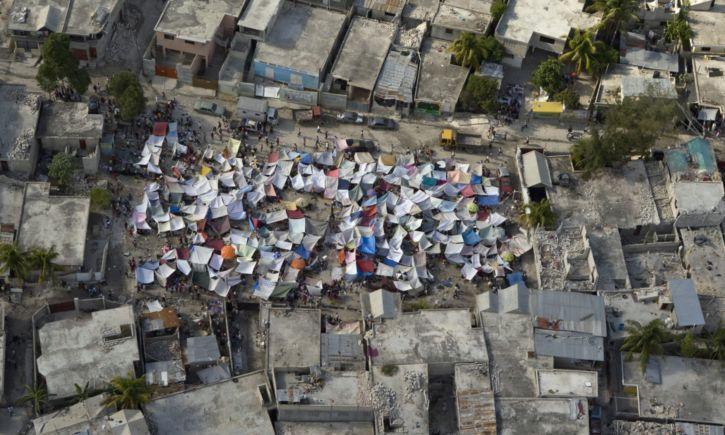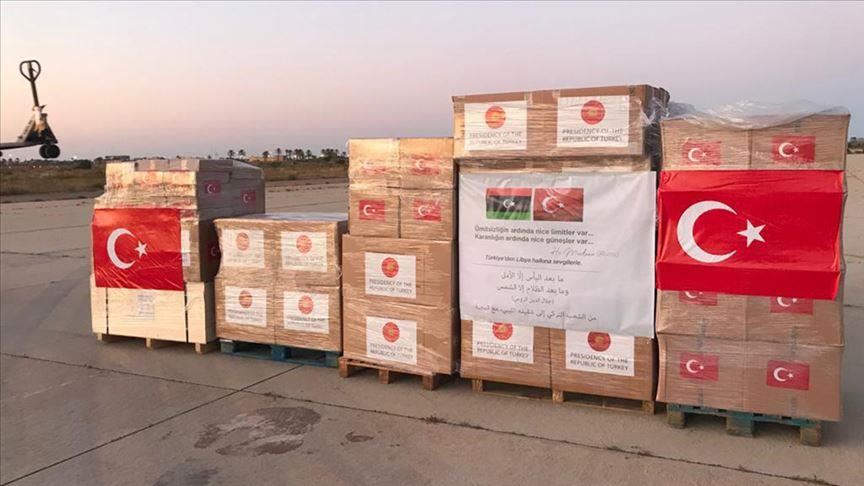As the world watches the situation in Syria and Turkey unfold with a close eye, our next steps are essential. Suppose aid organizations and foreign governments are not particular about their actions. In that case, the global community may set these communities back in terms of development, just as was seen in Haiti in 2010. After an initial earthquake of 7.0 following multiple aftershocks above 5.0, over three million Haitians had to face a new reality, and more than 200,000 people died. In Haiti, the government did not have adequate infrastructure in place to help its people overcome the challenges they now face
While outside involvement in Haiti may have resulted from the newly globalized world of 2010 or the lack of infrastructure, outsiders stayed too long in Haiti, ultimately inhibiting local growth and forcing dependence on outside organizations. In 2023, Haiti is known as the “Republic of NGOs,” effectively blocking local growth. Directly following the disaster, a reported $5.3 billion was pledged to help rebuild Haiti. Donors worldwide banned together to create a plan to provide food and housing to those affected by the earthquake. The plan was to help the community recover from the natural disaster while also helping address long-term issues in the country regarding policy and infrastructure. Many NGO members and aid workers set up camps and distributed emergency care for the thousands of Haitians impacted by the quake. In the short term, these efforts were amazing relief measures, giving help to those in immediate need. 
Nonetheless, aid is an industry, just like agriculture or banking. Because of that, people are making money off aid services, whether through fundraising, marketing or simply by being a for-profit organization. Individuals and organizations are profiting from aid and thus have no real incentive to stop cycles of poverty. So, it is no surprise that NGOs overstayed their welcome in Haiti after the earthquake. Not only did these organizations bring disease and corruption along with them, but they avoided directly working with the government, creating a system that lacked accountability. While free food or solar panels are great initially, when they continue to come, these free goods and services begin to destroy the local economy. Local farmers cannot compete with free food, and local electricians cannot offer their services for free and still make a living. Thus, when different organizations overstayed their welcome in Haiti, they added to the already long list of issues the country needs to overcome in order to continue developing. Different groups that have looked into the situation in Haiti –such as the film Poverty, Inc.– agree that the NGOs there are good at helping poor people but not actually assisting them in getting out of poverty.
In order to overcome high poverty and unemployment rates, on top of problems with education systems and basic infrastructure, they now have to dig their way out of the hole that the rest of the world has created for them through an excess of international aid. In retrospect, it seems that outside organizations had two options after the initial disaster: either provide aid and then move out of the way of local systems or work to create a long-term solution by training locals to take over the systems so that the country isn’t dependent on outside groups for food, power, and basic needs. This situation with Haiti is a complex one. The assessment that groups stayed too long does not discount the good work they did directly after the disaster. However, in the long run, a new system is needed to allow for autonomy and avoid a new form of neocolonialism by forcing these countries in a crisis to depend on outsiders.
So what? The disaster in Haiti was over a decade ago. As we speak, the situation in Turkey and Syria is a precarious one, especially considering the history of instability in Syria. Most recently, after an initial quake and multiple aftershocks, the people surrounding the border of the two countries are literally working to pull themselves from the rubble of a past reality. More than 40,000 people have been confirmed dead, and thousands more have been impacted firsthand by the disaster. Initially, around 11,000 rescue workers were sent to help the countries search for survivors and assist with emergency care –food, medical, etc. 
After more than a week, communities face new struggles, questioning government officials and watching those in charge try to block the world from reporting on the reality of the situation. In Turkey, citizens question how certain groups were adequately prepared for a disaster such as this earthquake, while others faced collapsing buildings and broken infrastructure. On top of this internal turmoil, President Erdoğan has fined Halk TV, Tele 1, and Fox for their coverage of the crisis, effectively trying to dissuade the world from pointing out the shortcomings of the party and government in Turkey. Similarly, the civil war in Syria has made it difficult for outside governments and organizations to organize aid and immediate assistance for those impacted. Although there are hurdles in the way of aid at this moment, it is essential that organizations do not circumvent the governments and systems already in place for both countries, as was seen in Haiti. If those in charge/power are avoided, it is likely that already weak systems –as in Turkey– and government –as in Syria– will only become weaker. Hopefully, aid will reach those in need in the short term, but after that, those trying to ‘help’ need to be very specific about their next steps. Suppose NGOs and other external organizations persist in providing supplies and aid beyond the initial crisis resolution in Turkey and Syria. In that case, there must be oversight to ensure their sustained efforts are aligned with viable long-term solutions. These groups must start channeling this support into empowering local communities to reclaim their autonomy and rebuild their systems and economies.
